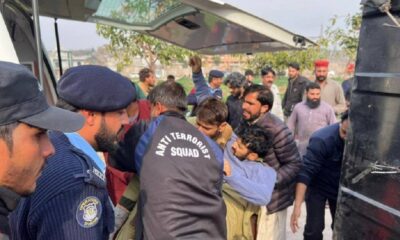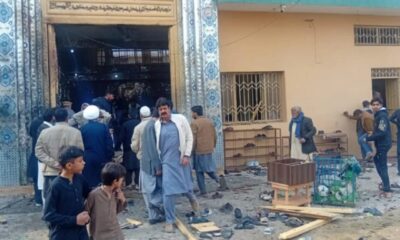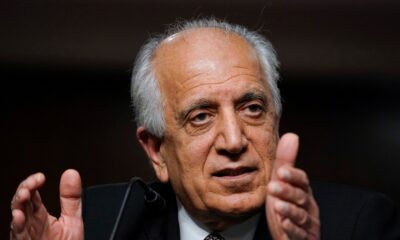Latest News
97% of Afghan population now facing food shortages: UN
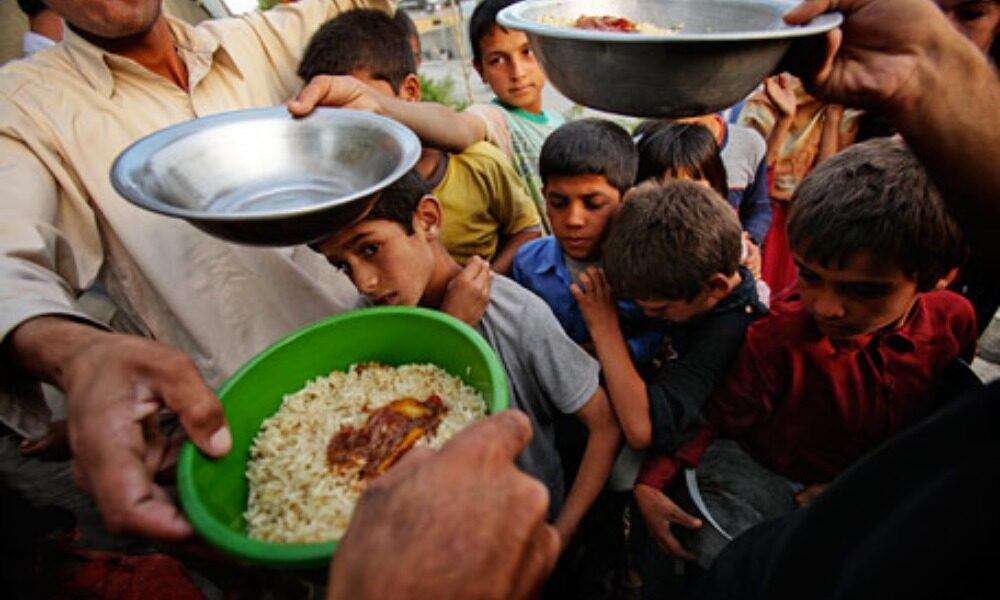
Millions of Afghans are now experiencing intense food shortages following the collapse of the former government and Islamic Emirate of Afghanistan (IEA) takeover in August.
As Muslims around the world celebrated Eid-Uk-Fitr, experts say that for most Afghans, it was simply another day of struggle to put food on the table.
According to the United Nations, 97 percent of Afghans are experiencing food shortages.
Following the IEA’s takeover in August, most Western aid was stopped. Hospitals and schools are unable to pay their employees, and many people are unable to purchase food, exacerbating an already dire crisis.
In a phone interview from her home in Afghanistan, a woman, who asked to remain anonymous, told Canada’s CTV News that she and her children struggled during Ramadan after months of limited access to food, which meant they had little to eat to break their fast in the evenings.
She says that without an adult male family member, their main source of income has been cut off, and the meal they received from a local charity on Eid for iftar was their first complete meal in months.
“When it comes to food shortages, it is so much worse than we can see,” said Noorain Noorani, the executive director of The Zahra Foundation, a registered charity with offices in Canada and the U.K. working to provide food and safe drinking water to impacted communities in Afghanistan.
“Political instability has continued to lead to displacement, loss of income, and access to education, and is contributing to the ongoing cycle of chronic poverty,” she said.
Over the past few months, the country has suffered a deadly series of bombings, including at mosques in Kabul, Kunduz and Mazar-e Sharif – an increased level of violence that Noorani says is compounding the food crisis.
The Zahra Foundation is one of the many organizations on the ground in Afghanistan that offered meal packages on Eid as Muslims broke their fasts with iftar.
“On Eid, we offered meals to anyone who needed them, and not just the civilians who’ve registered with us. But in the past few months, there are now more people on the waitlist than ever before,” said Noorani.
According to the United Nations World Food Program, more than 22 million people, or more than half of the country’s population, are suffering from acute hunger, with the majority unable to predict when their next meal would arrive.
This is a significant rise from September 2020, when over 14 million people were on the verge of becoming hungry. According to the group, 97 percent of the population had insufficient food consumption in December, and they were adopting ways to cope with their circumstances, such as skipping a meal.
The situation has gotten worse since a drought hit Afghanistan in October 2020. The UN says more than 40 percent of all crops have been lost, and livestock has been devastated due to the severe weather.
The United Nations World Food Programme in Afghanistan reached 376,139 people in Kabul in March 2022 for financial and food assistance, with the latest numbers for those supported in Eid still being tallied.
The IEA-controlled government has been cut off from the international economy since the fall of Kabul in August and the departure of U.S. soldiers, resulting in a currency crisis, widespread poverty, and the collapse of critical public services including health care.
The UN and its partners sought more than US$5 billion for the year in mid-January, more than the agency has ever requested for a single country.
The majority of the aid, US$4.4 billion, would go to Afghans within the nation. The remainder would be used to help the millions of Afghan refugees living in neighbouring countries such as Iran and Pakistan.
But there are concerns that Afghanistan still isn’t receiving enough international support.
Latest News
Afghanistan says Pakistan is shifting blame for its own security failures
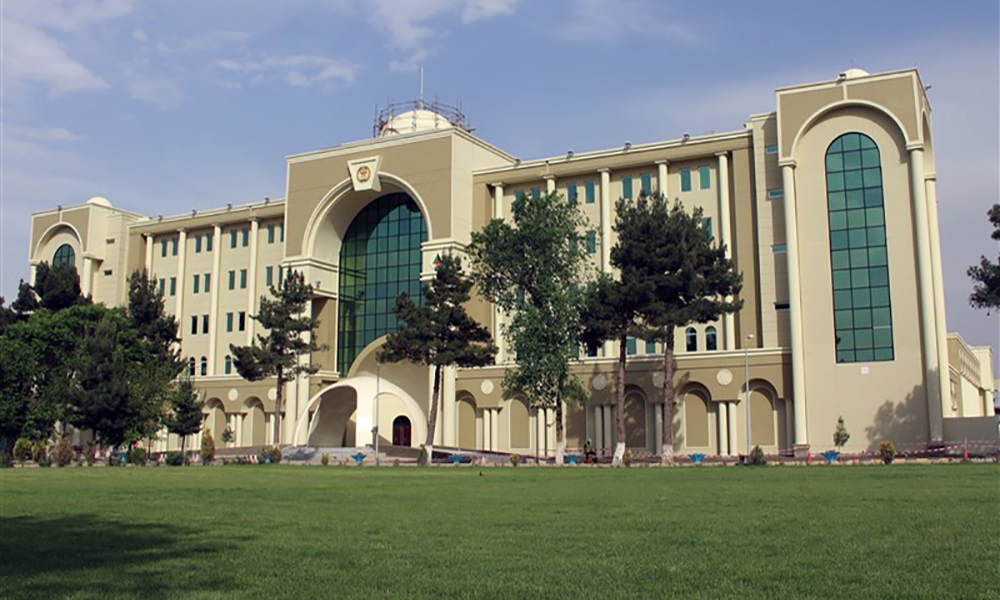
The Ministry of National Defense of the Islamic Emirate of Afghanistan has rejected recent accusations made by Pakistani officials following a deadly attack at a mosque in Islamabad, calling them “irresponsible” and “baseless.”
Pakistan’s Defense Minister Khawaja Mohammad Asif wrote on X that preliminary findings suggest the suicide bomber had been on the move to and from Afghanistan.
According to the Afghan Defense Ministry, Pakistan’s defense minister “immediately and irresponsibly” blamed Afghanistan for the attack without conducting proper investigations. Afghan authorities noted that this pattern has been repeated in the past, particularly regarding incidents in Balochistan and other security events inside Pakistan.
The ministry stated that linking such attacks to Afghanistan “has no logic or foundation,” adding that these statements cannot hide Pakistan’s internal security failures or help solve the underlying problems.
“If they were truly able to identify the perpetrators immediately after the incident, then why were they unable to prevent it beforehand?” the statement asked.
The Afghan government emphasized its commitment to Islamic values, stating it does not consider harm against innocent civilians permissible under any circumstances and does not support those involved in illegal acts.
The statement urged Pakistani security officials to take responsibility for their internal security shortcomings, review their policies, and adopt a more constructive and cooperative approach toward both their own citizens and neighboring countries.
Latest News
Islamic Emirate strongly condemns mosque bombing in Islamabad
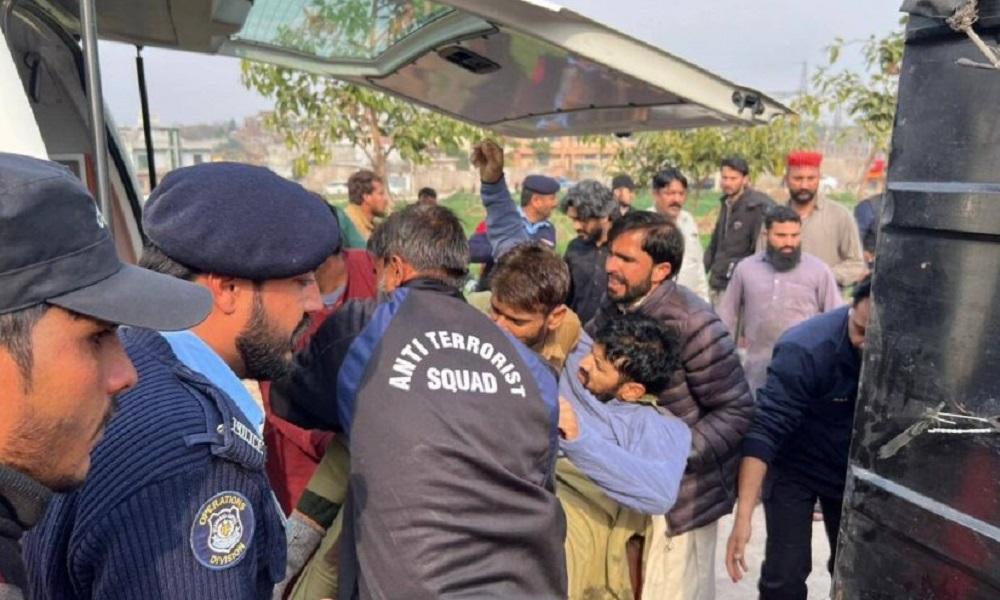
The Ministry of Foreign Affairs of the Islamic Emirate of Afghanistan has strongly condemned Friday’s suicide bombing at a Shi’ite mosque in Islamabad, the capital of Pakistan, which left 31 people dead and 179 others wounded.
Abdul Qahar Balkhi, spokesperson for the Ministry of Foreign Affairs, said in a statement that the Islamic Emirate considers such attacks—which violate the sanctity of religious rites and mosques and target worshippers and civilians—to be contrary to Islamic and human values.
The Islamic Emirate also expressed sympathy with the families of the victims and wished a speedy recovery to the wounded.
Latest News
Suicide bomber kills 31 in Shi’ite mosque in Pakistan’s capital
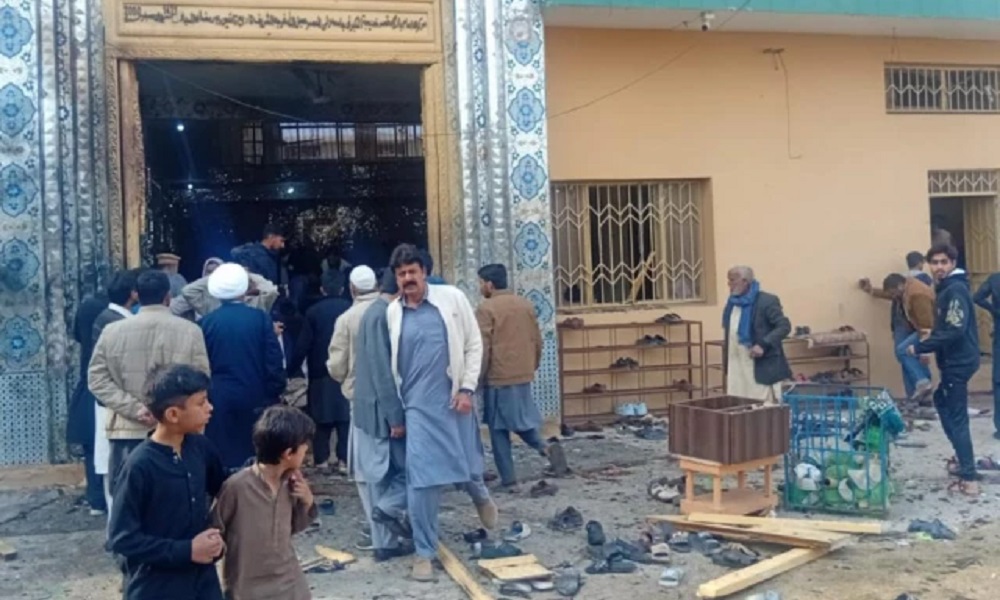
A suicide bomber killed at least 31 people and wounded nearly 170 others during Friday prayers at a Shi’ite Muslim mosque in Pakistan’s capital, Islamabad, Reuters reported, citing police and government officials.
Images from the site showed bloodied bodies lying on the carpeted mosque floor surrounded by shards of glass, debris and panicked worshippers.
Dozens more wounded were lying in the gardens of the Khadija Tul Kubra Imambargah, in a semi-urban area on the outskirts of Islamabad, as people called for help.
Bombings are rare in the heavily guarded capital, although Pakistan has been hit by a rising wave of militancy in the past few years.
“The death toll in the blast has risen. A total of 31 people have lost their lives. The number of wounded brought to hospitals has risen to 169,” Deputy Commissioner Islamabad Irfan Memon said in a statement.
Two police officials said the attacker was stopped at the gate of the mosque before detonating the bomb. They asked not to be identified as they were not authorized to speak to the media.
-

 Sport5 days ago
Sport5 days agoAFC Futsal Asian Cup 2026: Final eight confirmed
-

 Sport4 days ago
Sport4 days agoJapan trumps Afghanistan 6-0 in AFC Futsal Asian Cup quarter-final
-

 Sport5 days ago
Sport5 days agoAfghanistan in new kit for T20 World Cup warm-up against Scotland
-

 Sport3 days ago
Sport3 days agoHosts and heavyweights advance as AFC Futsal Asian Cup reaches semifinals
-

 International Sports5 days ago
International Sports5 days agoPakistan to boycott T20 World Cup group match against India
-

 Sport5 days ago
Sport5 days agoAfghanistan crush Scotland in ICC T20 World Cup warm-up
-

 Latest News2 days ago
Latest News2 days agoTerrorist threat in Afghanistan must be taken seriously, China tells UNSC
-

 Latest News3 days ago
Latest News3 days agoUzbekistan, Pakistan advance Trans-Afghan railway project






